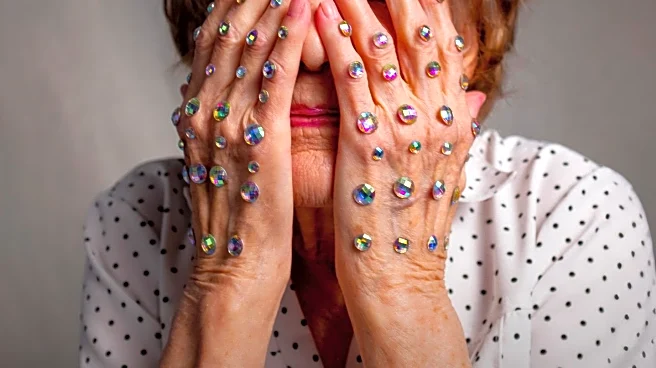What's Happening?
Joan Bennett Kennedy, the first wife of the late Massachusetts Senator Edward M. Kennedy, passed away at the age of 89. Known for her contributions as a classical pianist and her advocacy for mental health and addiction services, Kennedy died in her sleep at her Boston home on October 8. Her son, former Rhode Island U.S. Representative Patrick Joseph Kennedy, highlighted her influence on millions dealing with mental health conditions. Public and private services are planned, including a funeral mass at St. Anthony Shrine in Boston on October 15. Kennedy's burial will be private, and donations in her name are encouraged to support The Father Mychal Judge Recovery Center, which aids individuals recovering from addiction.
Why It's Important?
Joan Bennett Kennedy's death marks the loss of a significant figure in both the arts and mental health advocacy communities. Her openness about her struggles with alcoholism and depression provided a powerful example for many, encouraging public discourse on mental health issues. Her advocacy work has had a lasting impact, promoting equal access to mental health and addiction services. The arts community in Boston, where she was a beloved figure, will also feel her absence. Her legacy continues through the recovery center donations, supporting ongoing efforts to aid those battling addiction.
What's Next?
Following Joan Bennett Kennedy's passing, her funeral services will take place, offering an opportunity for family, friends, and the community to honor her life and contributions. The focus on donations to The Father Mychal Judge Recovery Center suggests a continued commitment to supporting mental health and addiction recovery, aligning with Kennedy's lifelong advocacy. This may inspire further initiatives and support for mental health services, reflecting her enduring influence.
Beyond the Headlines
Joan Bennett Kennedy's life and work highlight the intersection of personal struggles and public advocacy, demonstrating how personal experiences can drive societal change. Her openness about her challenges with alcoholism and depression has helped destigmatize these issues, encouraging others to seek help and support. Her contributions to the arts and mental health advocacy serve as a reminder of the importance of addressing mental health openly and supporting those in recovery.










